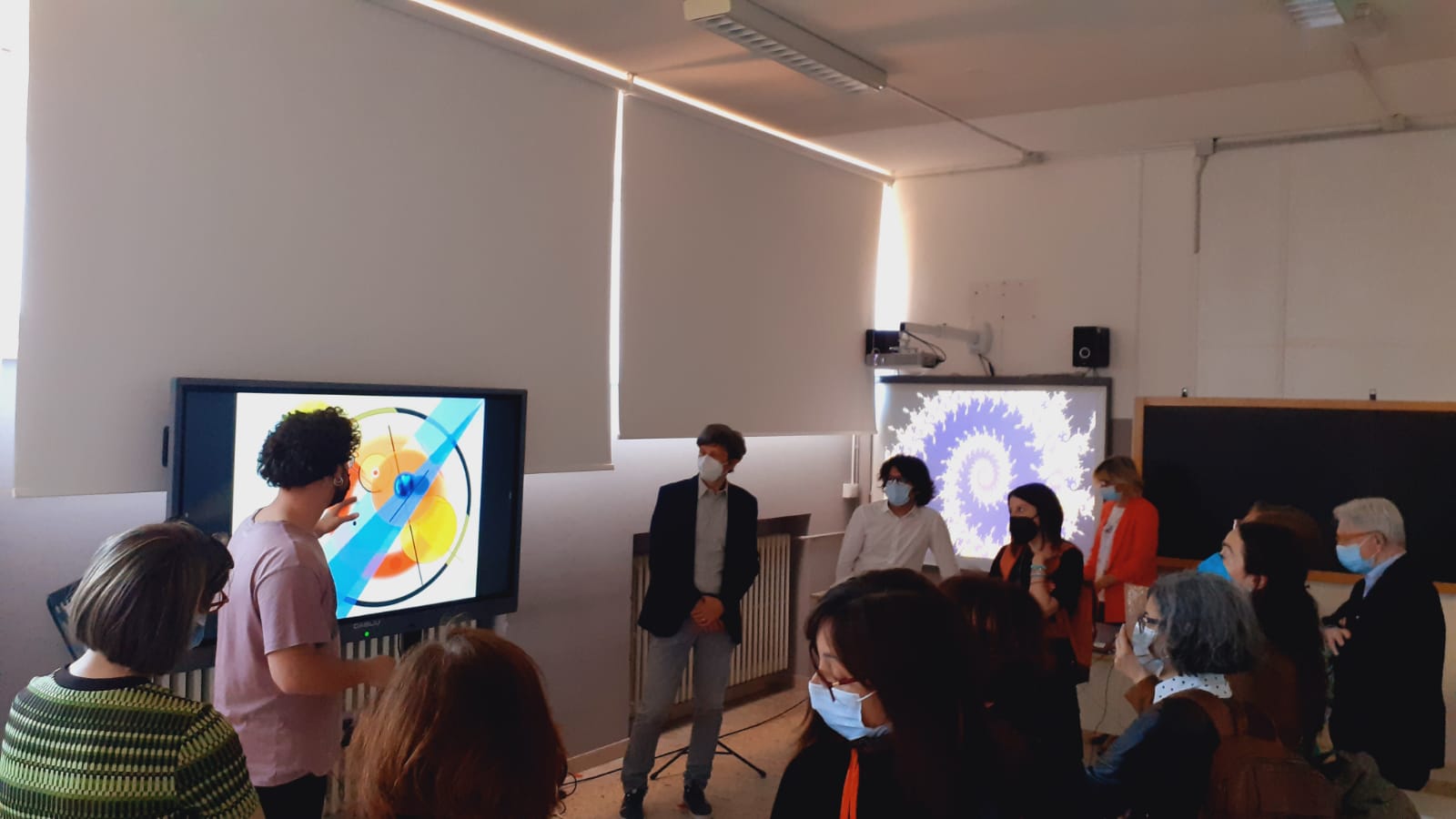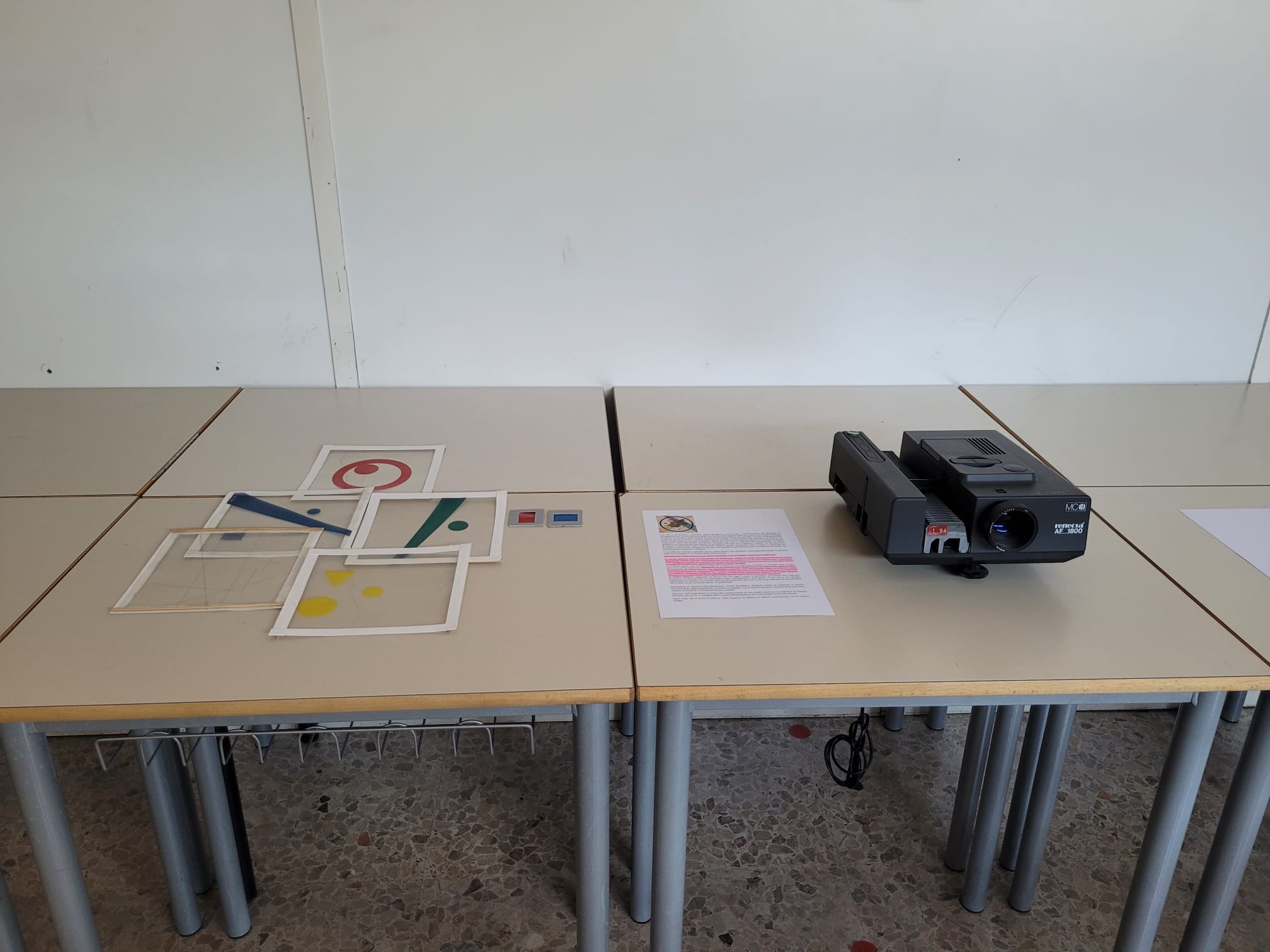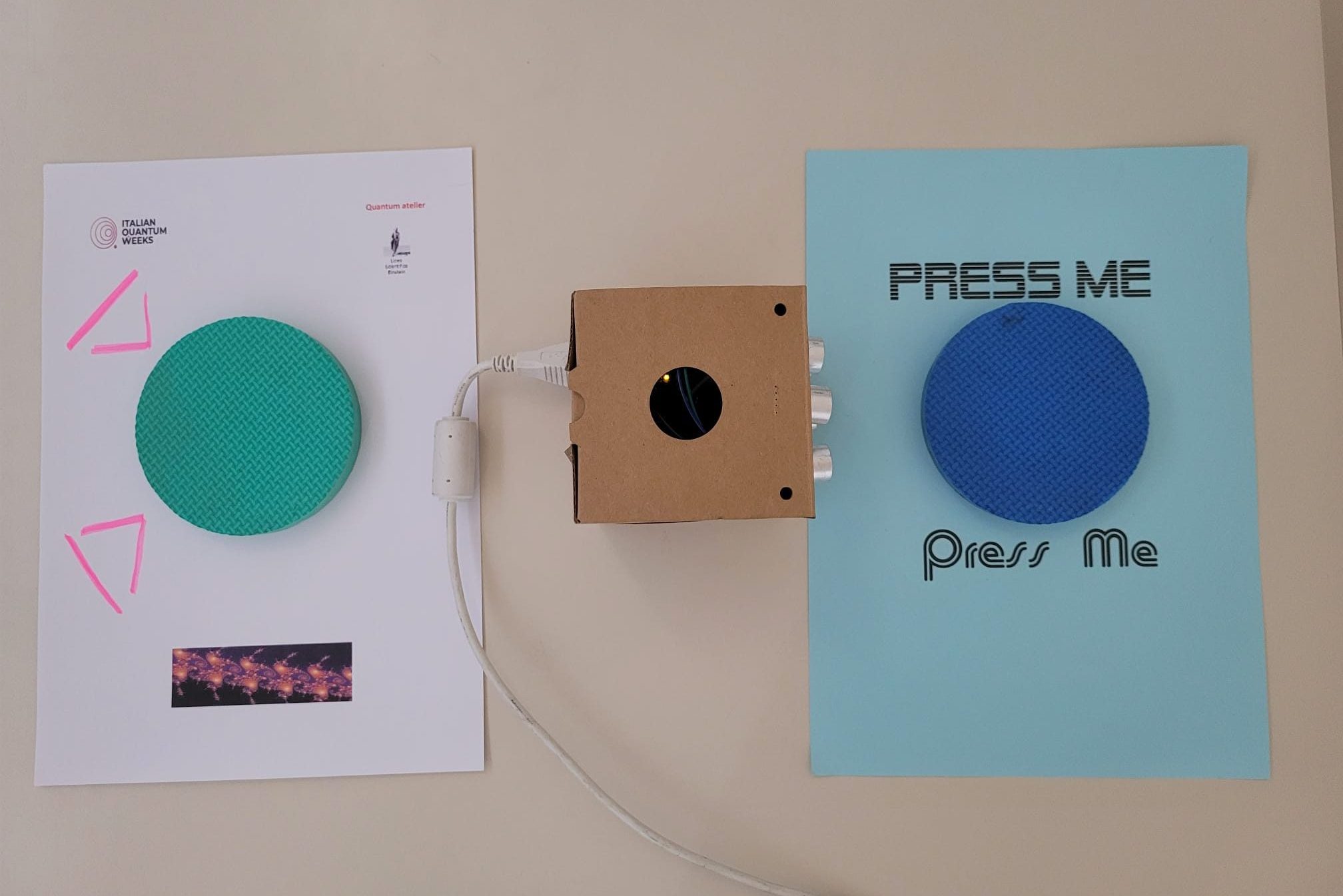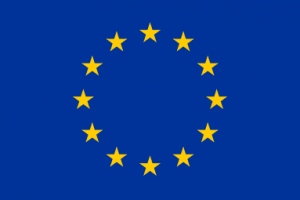“Quantum atelier” is an art-science laboratorial activity designed by the Bologna open schooling network and implemented at “A. Einstein” high school in Rimini (Italy).
As mentioned in the previous post, at the beginning of its journey FEDORA established three open schooling networks in three specific locations: Bologna, Oxford and Helsinki. Since then, researchers, teachers, communicators, and other professionals worked together at the design of activities and materials based FEDORA's research principles and results. The activities main aim has been to help young students in developing the skills they need to navigate our modern society by engaging them in future-oriented and society-related scientific issues.
The laboratory was preceded by a course about the Second Quantum Revolution designed by doctoral researcher Sara Satanassi and held in collaboration with three teachers (math, physics and literature/art). The 30 students involved (18-19 years old) were introduced to the basic concepts of Physics theory of information, quantum technologies and their societal impact. Eight of those 30 students concluded their educational path attending the “Quantum Atelier” art-science laboratory and challenging themselves by the production of a conceptual artwork.

As professor Giuseppucci wrote,
“The “Second Quantum Revolution” course tried to focus on how this second revolution deeply affects not only our way of looking at reality but also of being in it, requiring each of us to carry on a personal research that guides firstly our thought and then our language, in its various forms, to build images and visions of reality and self.
New technologies are far from being just tools that impart a simplification to our relationship with life, they actually contribute modifying our modes of perception by structuring a new "reality" which is yet to be understood.
In such a scenario, […] he education system, together with the rethinking of teaching methodologies, feels the need to contribute and stimulate the development of new languages, more suited to the challenge of the present. In fact, a new "reality" should be followed by new words, new images, metaphors and even a new aesthetic. This task falls mainly to scientists, philosophers and artists. However, the contribution that the school can provide is to open 'spaces' for experimenting together with the students, fueling a reflection that stimulates students to imagine new forms of representation of the knowledge they are acquiring.”


During the laboratory students divided themselves into three groups, each of them produced an artwork and a description of it. The latter was put into use during the final art exposition called “Finzioni” (italian for “Fictions”), a peer-to-peer activity, organised to let students present their artworks to the rest of the school.
The three artworks, named “|ψ˃”, “Appearance” and “Maze”, were all characterized by an interactive element, that students intended as a metaphor of the scientist in the act of measurement.
The following video, made by the students, illustrated the exhibition and the artworks.
The interdisciplinary nature of Quantum Atelier led students to learn how to dismantling and reassembling knowledge, trying to find a balance between the scientific and the artistic constraints (i.e. the formal and rigorous physics concept and the aesthetic form) as well as a balance with the limits of realisation based on personal skills. Through this process students learnt to look at knowledge from different points of view, becoming aware of personal framing, and they explored how to manage, reconstruct, and communicate knowledge according to personal taste and their personal identity.
Even if the experiences proved to be personally and collectively effective for personal learning and rethinking of the relationship between art and science, the artworks focused on concepts of the first quantum revolution. That enhanced the need to find new narratives to talk about the contemporary science to make people perceive more deeply the scope of the second revolution.
